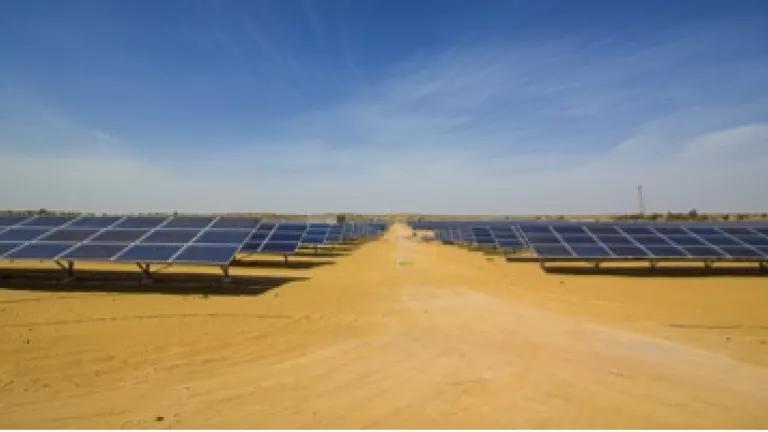
During the Climate Summit this week in New York, U.S. President Barack Obama emphasized, “The alarm bells keep ringing,” in his speech to the General Assembly. “Our citizens keep marching; we cannot pretend we can’t hear them.” President Obama then explained how his administration is taking leading action through stronger fuel economy standards for new cars and the first-ever national carbon pollution limits for power plants—the U.S.’ biggest single source of greenhouse gas emissions. Next week, President Obama can accelerate climate action further during his first meeting with India’s newly elected Prime Minister Narendra Modi.
India is a crucial partner in the global effort to fight climate change. As an emerging global leader and economic force, the country’s rapid growth and growing energy consumption have important implications for greenhouse gas emissions globally. Meanwhile the impacts of climate change are already bearing down on vulnerable communities in India and around the world. A U.S.-India strategic partnership is essential for advancing low-carbon economies, increasing energy security and preparing for the worst effects of climate change in both countries.
In recent years, the U.S. and India have built a strong foundation of bilateral cooperation on clean energy and climate change. Many U.S. companies play an active role in India’s growing clean energy market as well. With Prime Minister Modi’s focus on public health and energy access, particularly solar energy, the United States and India can provide joint leadership in advancing clean energy and climate change solutions. Five key areas for cooperation are: clean energy finance, energy efficiency innovation and leadership, more efficient and climate-friendly cooling, climate resilience and air quality improvements.
Solar panels at a power plant commissioned under India's National Solar Mission in Jaisalmer, Rajasthan. Photo credit © Bhaskar Deol.
In advance of the Obama-Modi summit, NRDC President Frances Beinecke sent a letter highlighting five priority areas for leadership:
- Innovative Financing. The U.S. and India should strengthen solar and wind finance to scale clean energy markets through bilateral funding and innovative instruments, such as green banks and green bonds.
- Joint Energy Efficiency Center. The US and India should build on recent US-India energy knowledge exchanges by creating an efficiency and electricity grid test center, modeled on the US FLEXLAB.
- Bilateral and Multilateral Progress on Heat-Trapping HFCs. The U.S. and India should couple progress towards an international phase-down of hydrofluorocarbons (HFC) with bilateral cooperation to help meet India’s concerns about the readiness of HFC alternatives. For example, the U.S. could assist India with technical knowledge exchange and concrete projects on climate-friendly coolants while discussing a phasedown timetable and an amendment to start Montreal Protocol negotiations.
- Climate Resilience. The U.S. and India should create a joint platform, modeled on the energy consortia, on resilience planning to protect communities from climate disasters, such as fatal floods and heat waves.
- Air Quality Research and Public Health Effects. Given both nations’ efforts to improve air quality, the U.S. and India should create a joint working group to share information on scientific, technological and health research to better air quality and protect human health.
During the Yale-TERI US-India Energy Partnership Summit in D.C. on Tuesday, September 30th, TERI’s Dr. Rajendra Pachauri and NRDC’s Frances Beinecke will be discussing the events of this week in New York, the Obama-Modi Summit, and future action on climate change. NRDC will also be releasing a new report on financing and employment opportunities in India’s wind and solar market.
As two of the largest democracies in the world, the United States and India must strengthen their collective resolve to address one of the greatest challenges facing humanity – climate change. Decisions made in the next few years will shape our future for decades to come. President Obama must continue to partner with India to accelerate action and leadership in addressing climate change. We’ll be watching to see what our leaders can deliver.
